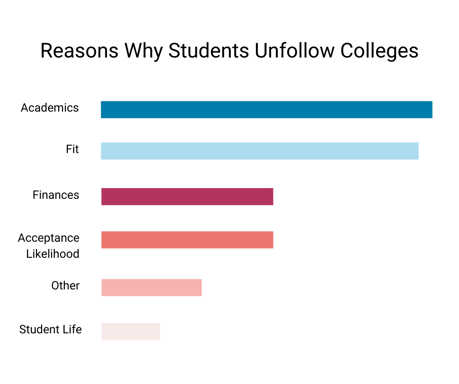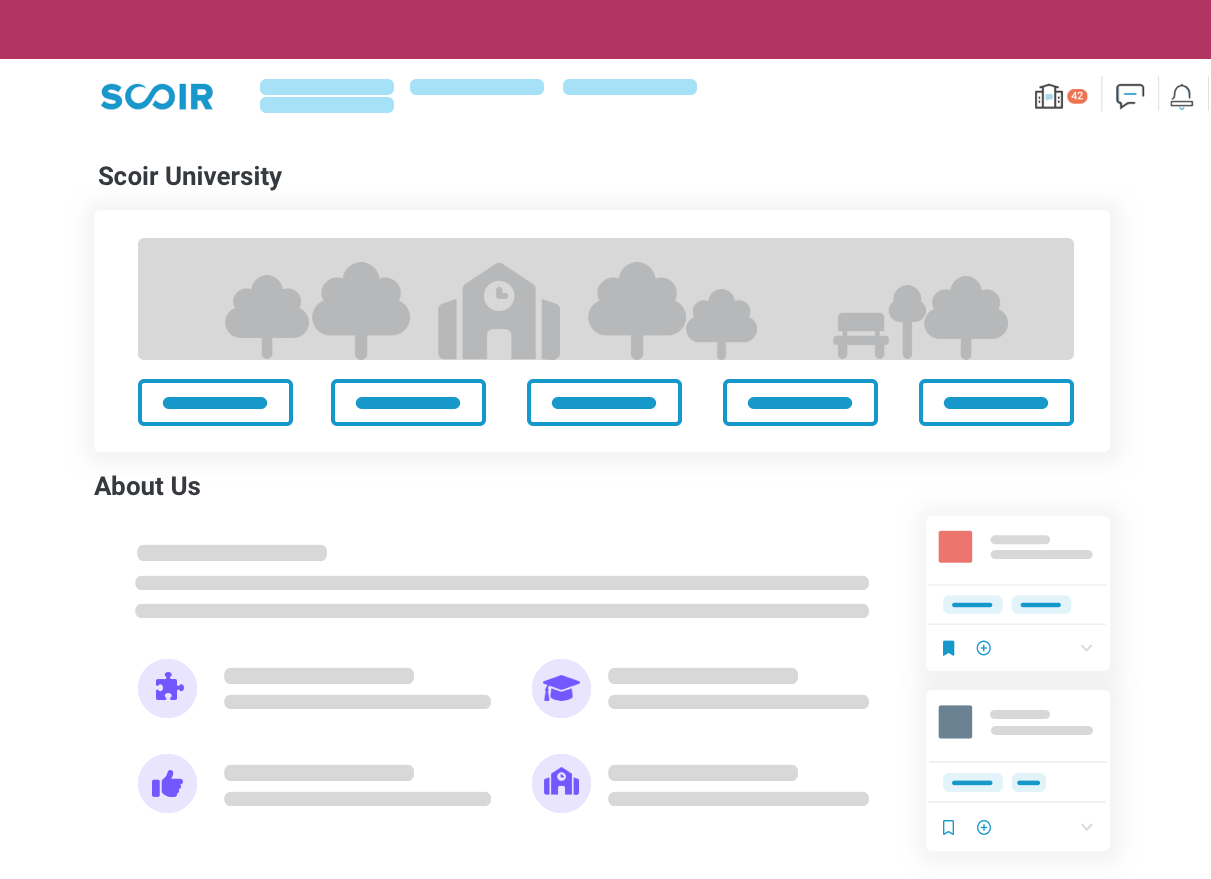4 min read
ACT and SAT Must-Knows for High Schoolers
We recently published a podcast episode on this topic. This blog post provides a recap of what we covered during the episode. Hi! It’s Abby from...
Free for students & their families
Seamlessly integrated, affordable systems for use across your district.
Career Readiness for 6-8 grade, built to guide and track progress in the early years of career exploration.
Scoir + Common App are integrated for the 2025-26 academic year!
Check out content and practical guides to help inform your enrollment strategies and programs.
3 min read
Megan Kauffman : December 06, 2023

At Scoir, we help students find the right college by answering the questions, “Will I fit in?”, “Can I get in?”, and “Can I afford it?” Students demonstrate interest by following colleges to receive additional information and timely reminders within the platform.
What happens when students change their mind about schools and why might that happen? We recently surveyed students to find out.
When a student follows a college, they have high intent. Students follow colleges they're genuinely interested in. Their interests evolve over time as they learn more about schools, and preferences shift during the college search journey. That's why is totally normal for students to unfollow schools.
In 2022, we asked students who recently unfollowed a college the question, “What’s the most common reason you unfollow a college?” The results were clear.

Students most commonly unfollow a college because of academics, closely followed by fit. For academics, that could be because a school doesn’t offer the major of interest or due to academic rigor.
The question of fit is more nebulous and potentially more emotion driven. Factors that could play into fit are campus community, diversity, and more.
Finances and acceptance likelihood were tied for the 3rd most common reason students unfollow. Average net price, cost of attendance, and scholarship availability all play a role in finances. Acceptance likelihood is top of mind for students, especially approaching senior year.
Interestingly, student life was the least common reason why students unfollowed a college. That could include reasons like athletic teams, clubs, and more that make up how a student experiences life on campus. As part of the survey, we also asked students for additional insights into their thought process while unfollowing schools. Students frequently mentioned that while their primary reasons for unfollowing were captured in the above, secondary reasons for unfollowing were finances and acceptance likelihood.
Students can explore College Profile Pages to see academic programs, financial aid, student life, and more for any college.

Students can also view #Posts to see what colleges are sharing!
Career Discovery also allows students to find colleges that prepare students for specific career paths.
Plus, students can view scattergrams in Scoir to gather insights into their acceptance likelihood and collaborate closely with college counselors and family members while building college lists.
Odds are, if a student has unfollowed a college, it's because they explored the college via Scoir and were able to rule it out. Students are highly engaged on Scoir, which means that they're highly engaged with the colleges they do follow.
In the free form feedback area of the survey, students talked about refining lists as they learn more about schools during the college search process.
Location was also top of mind for students. Some initially had aspirations of going to school far away then decided to stay closer to home. Size of the school was noted as a reason by students who changed their mind about wanting a large or small school. Changing ideas about Campus setting also played a role. Multiple students specifically unfollowed because they found out a school was in a rural area. Campus appearance and concerns about campus safety after visiting a college or reading something negative in the news were also listed by several students as a reason for no longer being interested.
Lack of diversity was another common call out in the student feedback section of the survey. Students want to attend schools that value diversity, equity, and inclusion in a demonstrable way. One of the most frequently mentioned reasons for losing interest mentioned by students was realizing a college has an SAT or ACT requirement. Student sentiment towards the tests is increasingly negative as the test-optional movement continues to gain momentum and public concerns grow about their role in perpetuating inequality in the admissions process.
We pride ourselves on taking a student-centered approach in everything we do. That’s why colleges can't pay to advertise or prevent unfollows on Scoir. What colleges can do is ensure they're sharing accurate information about academic programs, cost and aid, and campus community to help students answer the questions, “Will I fit in?”, “Can I get in?”, and “Can I afford it?” With the Insights Dashboard included in our College Solutions, colleges can measure the size of their interested student audience over time by class year and gain an in-depth understanding of student interests and preferences. As students are exploring colleges, colleges can create a personalized experience for every student visiting their profile through the use of #Posts, which dynamically surfaces content based on student interests.
For students who demonstrate interest by following, colleges can also engage through Outreach Messaging to provide additional context that can’t readily be found through other online sources, such as current student perspectives. Unlike email, when a student is no longer interested, they immediately stop receiving messages on Scoir and don’t get frustrated by continued outreach. This also means colleges can focus on engaging students with the highest intent, who are most likely to convert and yield.
This article was originally published on March 17, 2022. It was updated on December 6, 2023 for accuracy and comprehensiveness.
Megan Kauffman is a blog post contributor at Scoir.

4 min read
We recently published a podcast episode on this topic. This blog post provides a recap of what we covered during the episode. Hi! It’s Abby from...

6 min read
Gaining admission to the college(s) of your choice might weigh heavily on your mind at the moment. The odds are that the prospect of affording...

8 min read
The Free Application for Federal Student Aid (FAFSA), managed by the Department of Education, is the gateway to federal and state financial aid for...